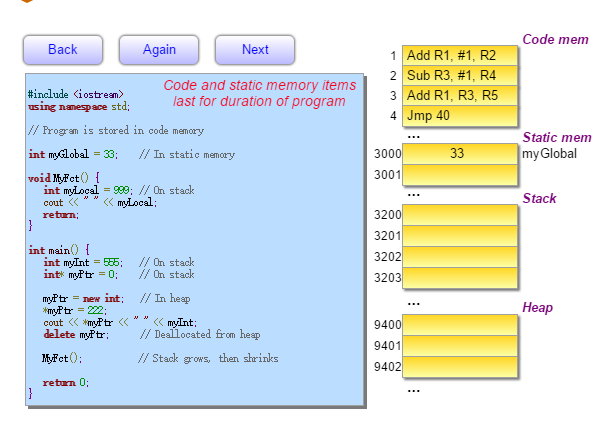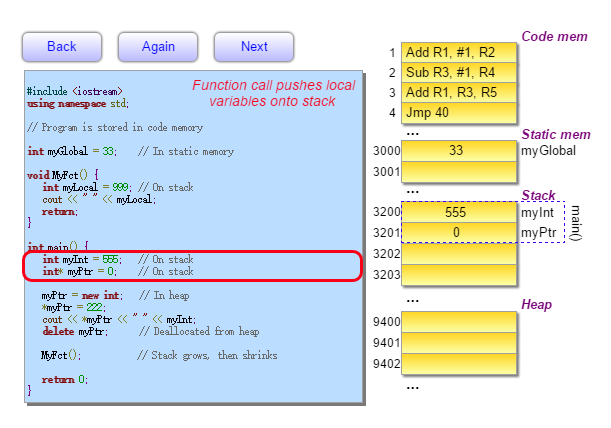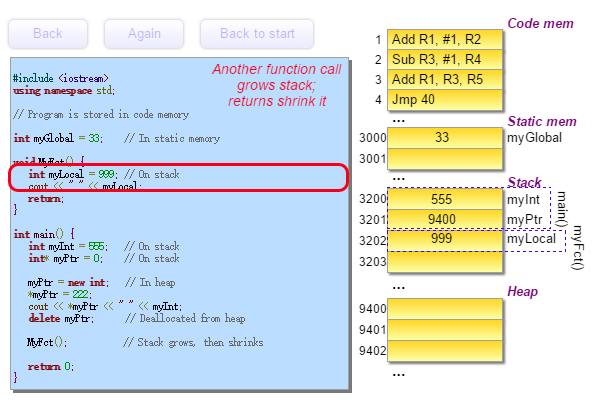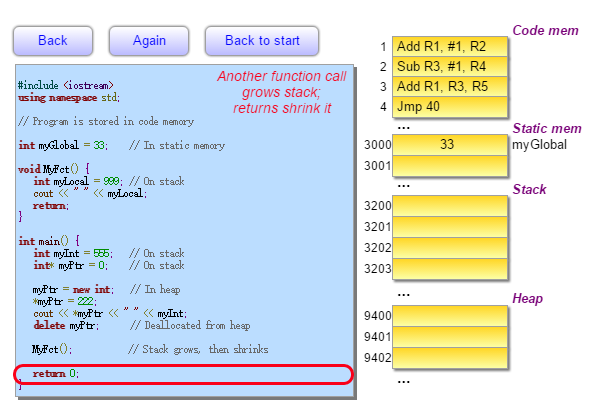A program's memory usage typically includes four different regions:
- Code -- The region where the program instructions are stored.
- Static memory -- The region where global variables (variable defined outside any function) as well as static local variables (variables defined inside functions starting with the keyword "static") are allocated. The name "static" comes from these variables not changing (static means not changing); they are allocated once and last for the duration of a program's execution, their addresses staying the same.
- The stack -- The region where a function's local variables are allocated during a function call. A function call adds local variables to the stack, and a return removes them, like adding and removing dishes from a pile; hence the term "stack." Because this memory is automatically allocated and deallocated, it is also called automatic memory.
- The heap -- The region where the "new" operator allocates memory, and where the "delete" operator deallocates memory. The region is also called free store
The Following shows how them work





